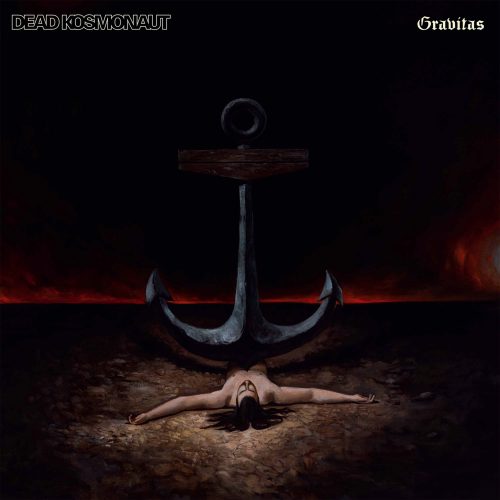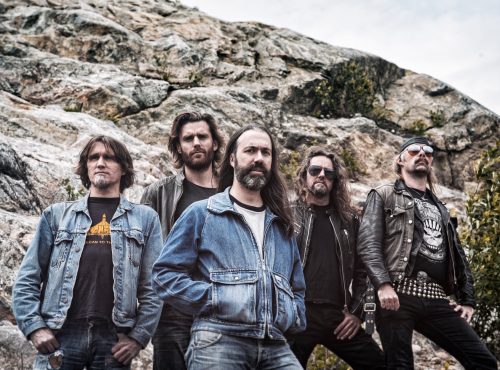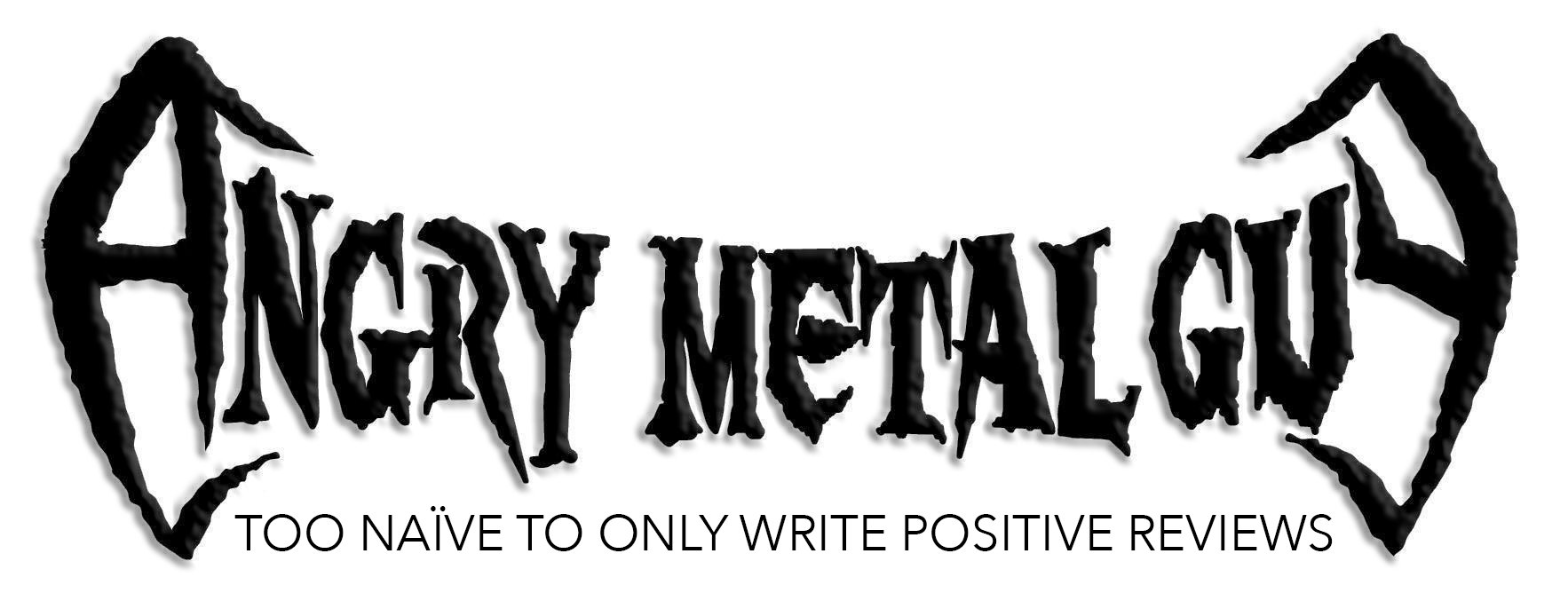 January has been kind to me, and while I haven’t been the overrating bastard that Holdeneye has, I also haven’t had anything bad come my way.1 Am I just in a good mood? Likely not, since I hate winter. Even this blind dip into the promo bin, Dead Kosmonaut’s second album, Gravitas, has been more than a pleasant surprise, helping pull me out of the winter doldrums with a wholly unexpected sound and style. You see, this Swedish quintet yearns for the days when it was simply “heavy metal,” not the 115 sub-genres we love and loathe today. They don’t restrict themselves in any way, instead of focusing on writing great material, and letting the songs take them where they go. That’s a bold goal for a newer band, but Dead Kosmonaut aim to be up to the task.
January has been kind to me, and while I haven’t been the overrating bastard that Holdeneye has, I also haven’t had anything bad come my way.1 Am I just in a good mood? Likely not, since I hate winter. Even this blind dip into the promo bin, Dead Kosmonaut’s second album, Gravitas, has been more than a pleasant surprise, helping pull me out of the winter doldrums with a wholly unexpected sound and style. You see, this Swedish quintet yearns for the days when it was simply “heavy metal,” not the 115 sub-genres we love and loathe today. They don’t restrict themselves in any way, instead of focusing on writing great material, and letting the songs take them where they go. That’s a bold goal for a newer band, but Dead Kosmonaut aim to be up to the task.
Gravitas is an album that has been split in half. The first half consists of four hard-rocking, relatively straightforward cuts, while the second half is essentially two long, rather moody progressive-leaning songs. The immediate nature of the first half lends itself well to deep enjoyment. Opening tracks “Black Tongue Tar” and “Iscariot’s Dream” contain hints of early Judas Priest within the feel and arrangements,2 while “Vanitatis Profeta” drinks deeply from the occult well and the excellent “The Spirit Divide” is the highlight of Side 1, a modern take on Iron Maiden complete with a bass-led bridge and galloping verses. The music is spot-on, but what holds these songs together is the otherworldly performance of Pelle Gustafsson behind the mic. Gustafsson imbues each lyric with Dio-like drama and his voice virtually drips with charisma and confidence.
The second, more progressive half doesn’t fare quite so well as the stellar first half, but it’s no slouch. “Hell-Heaven” opens as a morose ballad until past the four-minute mark, where it moves into grandiose, epic territory, rising and falling like the tides the song’s figurative ship is sailing upon. The two-part “Dead Kosmonaut” takes the band into doomy, atmospheric realms, not unlike Pink Floyd. It’s a majestic, larger-than-life song, highlighted by a massive church organ, a plodding, menacing pace, and moody guitar work. And much like the shorter songs, Gustafsson turns in a simply fantastic vocal performance that needs to be heard.

Lyrically, a lot of Gravitas deals with depression and religion, with the opening and closing tracks skewing towards the former and some of the middle songs the latter. And while Dead Kosmonaut’s vocalist steals every scene he is in, musically these guys also do some excellent work. Guitar solos courtesy Pär Fransson and Fredrik Folkare are technically impressive yet also strikingly arranged, fitting in just right in every song. This is really a stellar album to listen to if one is a big fan of stunning vocals and excellent guitar work. That makes it difficult to focus on the rhythm section of Mattias Reinholdsson (bass) and drummer Henrik Johansson, but those two hold their own capably, with several stellar bass lines (“The Spirit Divide”) and wonderful fills. The key rhythmically is that these two never over-play, instead of leaving plenty of room for their mates to shine.
Gravitas is a breath of fresh air, and Dead Kosmonaut are a band that simply go for it on the songs. The album’s arrangement is a gamble that doesn’t quite pay off, as the thrill of the first half succumbs to the weight and pace of the second, but that doesn’t completely temper our enjoyment. Excellent arrangements, solid musicianship, and a stellar vocal performance all add up to a highly enjoyable record. Now if only the band could establish a Bandcamp presence so we could buy this album and their debut.
Rating: 3.5/5.0
DR: 7 | Format Reviewed: 320 kbps mp3
Label: High Roller Records
Website: facebook.com/dead-kosmonaut
Releases Worldwide: January 31st, 2020

















